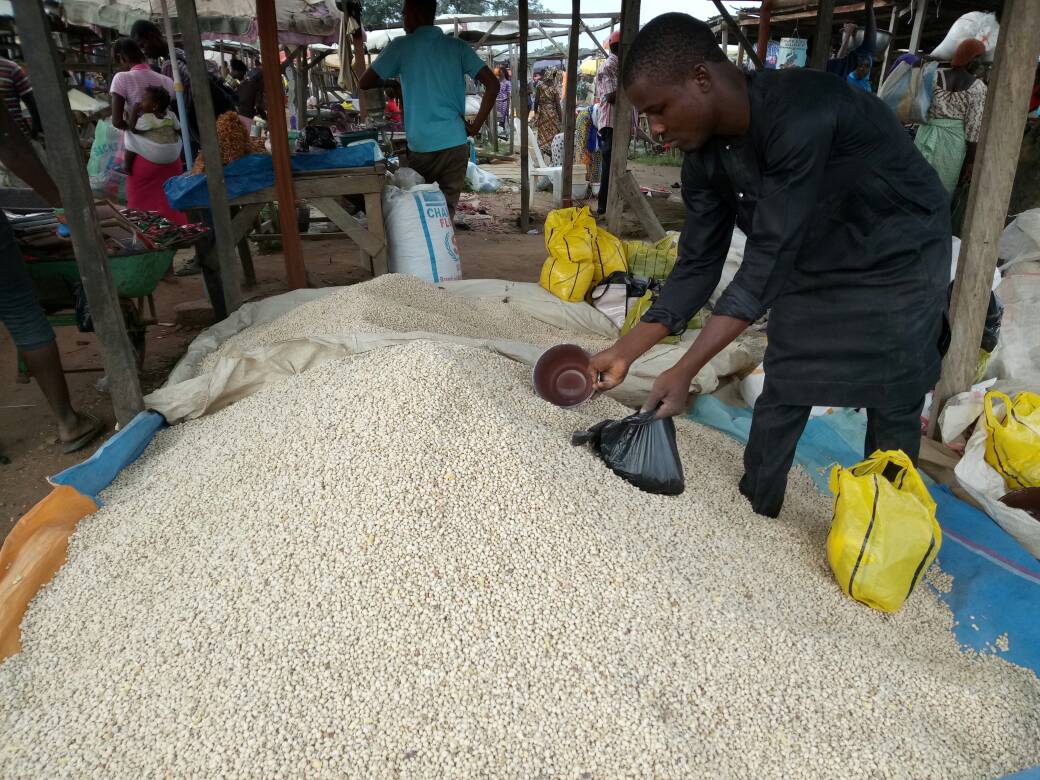
If Nigeria is unable to produce enough food to feed its over 180 million citizens, the impact may be devastating for other African countries, especially the smaller West African nations, whose residents could face starvation or be plunged into a food crisis.
Dr. Issoufou Kollo Abdourhamane, regional head of the African Agricultural Technology Foundation (AATF), expressed these concerns in an exclusive interview with our correspondent in Abuja. As a huge market in Africa, Nigeria s food security should never be taken lightly because of the ripple effect it could have on other smaller African countries, he said.
Citing a 2006 example, he noted that Niger experienced a serious food crisis because Nigeria was unable to produce enough maize that year and had to buy its supply from other West African countries.
They had to go all the way to Ghana and Benin to buy maize, Abdourhamane said. A small country like Niger buys its maize from Benin but when they came, Nigerian traders had already bought all the maize and it created serious problems. It was all over the news that there was a big hunger in Niger, but the problem was Nigeria had to have enough maize, so this is why maize became a very strategic crop.
The AATF boss said biotechnology could be effectively deployed to address challenges of weeds, insects and pest infestation of staple crops, boost production and enhance food security for Nigeria.
Abdourhamane gave examples of how science can be deployed to tackle pest infestation, citing projects like the Water Efficient Maize for Africa (WEMA) and pod borer-resistant (PBR) cowpea as good examples of how genetic engineering (GE) can solve real challenges by improving the crops to resist and withstand adverse/harsh weather conditions and pests.
One such pest is the fall army worm (FAW), which invaded Nigeria and other African countries last year, leaving a trail of destroyed maize farms in the country s five major corn producing regions.
Abdourhamane said the WEMA initiative, which is being handled by the AATF, is likely to get support from the African Development Bank (AfDB) and would provide lasting solutions to challenges like the fall army worm, as well as stabilize the nation s food market. The project will begin in Nigeria once it is approved by the appropriate agencies.
Currently, maize is displacing sorghum, which is drought tolerant in the sub-humid areas of Africa, which means we put our food security in a very dangerous situation without knowing, he said. If you get a one-week drought with maize at the time of harvest, forget about your maize crop, and Nigeria would have to buy maize. So, this is why drought tolerant maize, the water efficient maize, is strategically important for the sub-humid areas of West Africa including Nigeria.
As for the PBR cowpea project in Nigeria, Abdourhamane, who is also the PBR project manager, stated that its aim is to develop and disseminate to farmers their preferred and locally adapted cowpea varieties, genetically engineered with the Bt gene to provide inherent resistant to the maruca pest. The project is in its final stages of field trials and will boost the nation s production of beans once it is commercialized.
The AATF is currently working to develop a dossier to show that PBR beans are safe for human consumption, which will pave the way for subsequent approvals by the national varietal release committee and the National Biosafety Management Agency (NBMA) to facilitate commercialization this year.
If we don t solve Nigeria s food problem, forget about the rest of West Africa, he cautioned. This is because Nigeria comprises about 80 per cent of West Africa. And you don t want Nigeria to go out to other African countries, which do not have enough capacity to support its food needs. Countries like Niger, Burkina Faso, Benin depend a lot on Nigeria.
